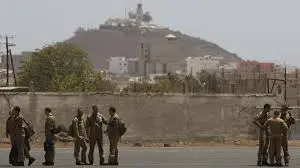France Withdraws from Senegal, Ending 65 Years of Military Presence Amid Regional Realignm

July 17, 2025 Hour: 7:52 pm
In a pivotal moment for West African geopolitics, France officially concluded its military presence in Senegal with a ceremonial handover at Camp Geille, Dakar.
The event marked the final phase of a withdrawal that reflects deeper transformations across the region and a redefinition of Senegal’s post-colonial identity.
Presided over by General Mbaye Cissé, Chief of Senegal’s Armed Forces, and General Pascal Ianni, head of French command in Africa, the handover symbolized the end of a 65-year strategic deployment that began shortly after Senegal’s independence from France in 196Pe
Camp Geille, previously housing approximately 350 French soldiers, was the last operational base under French command.
In his address, General Cissé emphasized that the closure represents more than a logistical shift—it is a turning point in Senegal’s sovereignty journey. He praised the military’s readiness to assume full control and expressed optimism about evolving bilateral relations, now based on equality rather than hierarchy.
The departure fulfills the promise of President Bassirou Diomaye Faye, who declared in December 2024 his intention to remove all foreign troops by the end of 2025. His administration cited widespread anti-French sentiment and a pressing need to dismantle lingering structures of neo-colonial influence.
Senegalese critics have long questioned France’s military footprint. In 2021, anti-imperialist protests led to the looting and torching of several French-owned businesses. The unrest coincided with rising demands to acknowledge France’s historical injustices—including the 1944 massacre of Tirailleurs Sénégalais, African veterans killed by French colonial forces after demanding unpaid wages and humane treatment.
During the Dakar ceremony, French officials referenced a recent letter from President Emmanuel Macron, in which he recognized the massacre and committed to further transparency on France’s colonial legacy. Senegalese historians and civil rights groups have called the gesture “important but overdue.”
France’s withdrawal from Senegal is part of a regional pattern. Between 2020 and 2024, military coups in Burkina Faso, Mali, and Niger led to the expulsion of over 4,000 French soldiers. Former French bases in Ivory Coast, Chad, and the Central African Republic have also been shuttered. Today, Djibouti remains France’s only permanent military outpost on the continent, hosting roughly 1,500 troops.
The end of France’s mission in Senegal has strategic implications, not only for defense coordination but also for intelligence, joint training, and peacekeeping. Senegalese military analysts say the country must now focus on strengthening regional alliances, bolstering domestic defense infrastructure, and pursuing new partnerships on its own terms.
The broader sentiment in Dakar reflects pride and resolve, with many citizens viewing the French departure as a symbol of autonomy long awaited. “We’re not breaking ties—we’re rewriting the terms,” said one local activist during a parallel civil ceremony.
Diplomatic channels between Paris and Dakar remain open. French officials said future cooperation may include civil protection, counterterrorism, and climate security, but without permanent troops on Senegalese soil.
In closing the ceremony, General Cissé invoked the words of Leopold Senghor, Senegal’s first president and a celebrated poet: “Independence is not a break—it’s a renewal.” As the tricolor flag was lowered for the final time, that renewal seemed no longer metaphorical but underway.
Author: OSG
Source: EFE-Africanews

